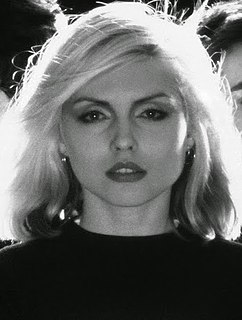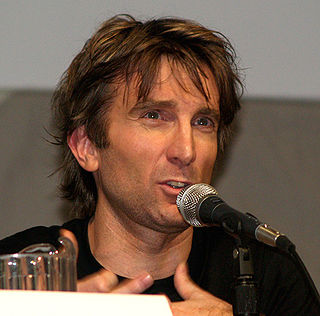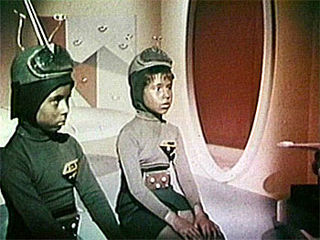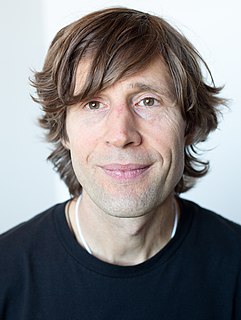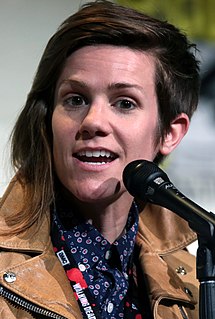A Quote by Debbie Harry
There are all these different areas of specialization. That's it. You have to be a specialist nowadays. There's no other way. I was an artist for a long time, but I was always into being a general practitioner. I did a little of this and a little of that. And nothing got me anywhere. You have to specialize. If you don't specialize, it takes you until you're about fifty years old before anybody notices that you're doing anything at all.
Related Quotes
I love comedy. I suppose comedy is my first love, in a way. I did a lot of acting, funnily enough, unprofessionally, as a kid. From when I was 10 years old until I was about 19, I was always doing little sketches with my friends, and doing different accents and voices. Probably about 3/4 of those were comedic, in some way, and the other 1/4 was more serious stuff or more action or more dramatic little pieces that I would make. But, I tend to lean towards comedy.
I suppose Virgin is an unusual brand in that I suspect we're the only 'way of life' brand in the world. We're one of maybe the top 30 best known brands in the world, yet if you look at the other 29, they all specialize in one area. Whether it's Google, Coca-Cola, Microsoft, etc., they all generally specialize in one area.
The rate of progress is so rapid that what one learns at school or university is always a bit out of date. Only a few people can keep up with the rapidly advancing frontier of knowledge, and they have to devote their whole time to it and specialize in a small area. The rest of the population has little idea of the advances that are being made or the excitement they are generating.
As a kid, I grew up on a farm in Florida, and I did what most little kids do. I played a little baseball, did a few other things like that, but I always had the sense of being an outsider, and it wasn't until I saw pictures in the magazines that a couple other guys skate, I thought, 'Wow, that's for me,' you know?
Even those who specialize in the history of philosophy often ignore the political and cultural context, and the natural world in which their philosophers were philosophizing. This has consequences both trivial and important. If you systematically read the last fifty years of the major journals in our discipline you would be amazed at the amount of redundancy. Most of this is unacknowledged because most of us know so little about the history of our discipline and even the subfields in which we work.
...why did Plato say that poets should be chased out of the republic? Precisely because every poet and every artist is an antisocial being. He's not that way because he wants to be; he can't be any other way.... and if he really is an artist it is in his nature not to want to be admitted, because if he is admitted it can only mean he is doing something which is understood, approved, and therefore old hat - worthless. Anything new, anything worth doing, can't be recognized.
As a little girl, I didn't like stories about little girls. I liked stories about dragons and beasts and princes and princesses and fear and terror and the Four Musketeers and almost anything other than nice little girls making moral decisions about whether to tell the teacher about what the other little girl did or did not do.
It seems to me that literature is giving way a little bit to the immediacy of other diversions, other forms of entertainment. What will it be in fifty years? I don't know. Will there be printed books? Probably, but I'm not sure. There's always going to be literature, though. I believe that. I think literature has a way of getting deep into people and being essential. Literature has its own powers.
Before I was a vegetarian, I traveled to South Africa and hung out there for a little bit. And they had different animals - did you know different parts of the world have different animals? Because I didn't until I got there! This is what being an American is like. You're like, "Every place has these animals."
